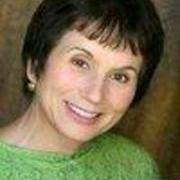Hundreds of people have asked me why someone develops an eating disorder. Of course many issues are involved, but from my exploration of this field over the years, I have concluded that there is one outstanding theme that runs through every person with an eating disorder whom I have encountered.
Early in their lives, people with eating disorders have experienced, on a sustained basis, relentless boundary invasion on every level.
When their physical, emotional, psychological, intellectual, sexual, and creative boundaries are consistently ignored and penetrated, people experience total boundary invasion. With no control and no way to end, protest, or, often, even acknowledge such invasions, these persons feel helplessness, despair, and a certainty that they are worthless to themselves or anyone else.
The consequences of such total invasion are vast. One consequence is an eating disorder. Having had so many boundaries disregarded, a person has no knowledge or skills in recognizing or honoring boundaries herself. She will eat or starve for emotional relief.
She may eat vast amounts of food for comfort value alone. She may deprive herself of food until her life is in danger. She has no internal regulator that tells her when she has reached her limit and experienced enough. Being oblivious to any boundaries means being oblivious to limits of any kind.
The compulsive overeater eats whenever and whatever she likes. She bases her choices on self-medication issues, not feelings of physical hunger.
The anorexic will not eat. There is no limit to her not eating. She will starve herself to death in search of relief from her emotional pain. She knows nothing of the experience of having enough. She couldn't say, "Enough," to an invader of her boundaries, and she can't say it to herself. The concept of enough has no meaning to her. She often feels that if she "disappeared," she might find some permanent relief.
I have heard countless anorexic young women talk ethereally, with a lost-in-a-beautiful-world-of-angels smile, of how wonderful it would be to become a vapor or a light dancing spirit in the clouds. Ah, such spiritual bliss, they imagine. In reality, it's the final self-protective act, to destroy their bodies and their lives completely. Then they can truly escape the complexities of being alive.
The bulimic will binge grotesque amounts of food. She will assault herself with more food than her body can tolerate.
The compulsive overeater will, at last, have to stop eating if only because of the pain in her distended stomach. Her body sets a final limit. The bulimic has no such limit. She experiences (in her mind) no consequences of the food assault on her body. When her body cannot bear more, she will vomit it all out. Then she will resume her binge. She may reach her body's limits many times. Each time she does, she can throw up again and continue.
Eventually she stops, because she is completely exhausted, or she is in danger of being discovered. "Enough" has no meaning to her. There are no limits and no consequences for her disregard of her boundaries.
Realistically, of course, there are plenty of consequences. Her behavior inflicts serious damage to her body. And each time she attacks herself with a binge-and-purge episode, she destroys more of her spirit, soul, self-esteem, sanity, health, and value to herself and others.
Each violation deepens her ritualistic behavior, and she becomes more entrenched in her disorder. The consequence is increasing anguish and despair. Yet the eating disorder is not the cause of that anguish and despair. The eating disorder exists to numb her from her already existing psychological agonies.
For a while, maybe a few years, the eating disorder successfully blocks her awareness of pain too difficult to bear. But eventually the protective device of the eating disorder becomes just another boundary invader, this time self-induced, that weakens and damages her even more.
What do I mean by a history of boundary violations? Blatant and extreme boundary violations involve sexual molestation, sexual abuse, and physical abuse. Much has been written about these areas now, especially in material exploring Post Traumatic Stress Disorder (PTSD) and Dissociative Identity Disorder (DID). Use your search engines to find some quality information posted on the Internet in these subject areas.
However, there are other kinds of boundary violations, and these are less dramatic, less discussed, more prevalent, and just as devastating to a persons psyche. When, in the name of caretaking, people in authority take over a young person's life, it constitutes boundary invasion.
When others deny her privacy, read her diary, borrow or take her things without permission, or use their ideas or goals or personalities to overwhelm her efforts in school or sports, that is a violation of her boundaries.
When others disregard or disdain her choices or deny her any control over her personal life, clothes, food, friends, and activities, they are invading her boundaries.
An invasion of boundaries also takes place when, in the name of caretaking, people give her no responsibilities of her own and attach no consequences to her actions. When the child or adolescent can have all the things she asks for without putting forth effort to earn such gifts, she learns nothing about personal effort, limits, consequences, or the meaning of enough. If she wants something, she gets it. That's all. If someone picks up her clothes, does her laundry, fixes her car, pays her bills, lends her money or things without expecting them returned, she experiences no boundaries and no limits.
If she doesn't have to keep her promises, if she doesn't reciprocate with caring actions for people who care for her, she learns nothing useful about herself in relationship to other people. The only thing she learns with certainty is that there are no limits to her behaviors or desires.
These boundary invasions are not loving acts, nor are they "spoiling" a child through overindulgence. Quite the contrary, they are acts of neglect. The child's taste, mind, capacity to learn, and ability to grow and function as an independent agent in the world remain unacknowledged.
When others, even well-meaning others, ignore her identity as a unique, developing, and competent individual and flood her with their personal agendas, she feels as if a steamroller had flattened out her psyche. She may learn to please, to manipulate, to compete, or to control, but she is unable to learn to be fully present in the world as her genuine self.
She doesn't learn that she has meaning and value. She doesn't learn that she can put that meaning and value within her to work to accomplish goals.
For example, if she breaks something, whether it is a lamp, a car, her word, or someone's heart, it is possible and healthier to give her the responsibility for making necessary repairs using her own resources and her own creativity. In such a process, she learns what effort means. She learns what responsibility and consequences for actions mean. She learns reasonable limits and reasonable expectations. She develops resources to make healthy and caring decisions in the future.
Without such lessons, she learns are the tricks involved in adapting quickly to the expectations of others or being manipulative to get what she wants. These are poor and insubstantial tools to rely on when building an adult life.
Somewhere inside, over time, she may gradually realize this. But without a sense of boundaries, she will only become bewildered and anxious. She will accelerate her practice of using her eating disorder as a way to numb her feelings of anxiety. She will use her manipulating skills to get what she wants from whomever she can exploit.
As time passes, fewer people in her life will allow themselves to be manipulated. The quality of her circle of associates will decline as she seeks people she can control with her inadequate methods of functioning in the world. She will find herself in bad company.
This becomes all the more reason to rely on eating disorder behaviors for comfort. The people around her are less reliable all the time. And finally, they tolerate her presence only because they can manipulate her.
She arrives at the total-victim position. Her manipulative skills backfire. People exist in this world who are better at manipulating and using than she. She has found them. She becomes their target and then their prey. Her dependence upon her eating disorder becomes her most valuable and trustworthy relationship.
Early in her development, she learned through massive boundary invasions (which perhaps seemed ordinary and unimportant at the time) that she was helpless to assert herself. She learned that she had no private or sacred space to cherish and respect. She could not acknowledge, even to herself, that she was being thwarted, invaded, controlled, manipulated, and forced to deny large aspects of her natural self. She had no recourse except to comply.
To succeed at being unaware of her natural tastes, curiosities, and inclinations and her pain in restraining her natural tendencies, she developed an eating disorder. Now that she's older and her manipulation skills are failing her, she only has her eating disorder to rely on. This may be the most crucial time in this person's life.
If her pain and despair are terrible enough and she is certain she cannot bear this way of living anymore, she still has choices. She can continue to rely on the eating disorder and by so doing take the path to self-destruction. Or she can reach out and get help.
This is a tough position for her. She's never known what enough was. Yet to choose to get help, she has to recognize that she has had enough pain. She's never known what a limit is. Yet she has to recognize that she has reached her limit and must choose between death and life. She has only known about pretense and manipulation. Yet she has to be honest to reach out for genuine help.
She feels massive anguish and pain before she stretches beyond her life pattern into what might bring her healing and recovery. She's reaching for something she can't imagine. It's difficult for a person with an eating disorder to decide to get help. She would have to allow herself to trust someone with knowledge of her real personhood.
She doesn't yet know that people who do respect and honor boundaries actually exist in this world. She doesn't yet know that there are people who can and will honor and cherish her most private and sacred inner spaces. She doesn't yet know that someday the trustworthy, respectful, steadfast, and competent caretaker she needs so badly can be herself.
Her first move toward recovery requires all the courage she can muster. Her recovery begins when with fear or rage, she rallies her courage to reach out for help.
Difficult, yes. But what she doesn't know yet is that she has been courageous all her life. She makes a grand discovery when she learns that she can apply her strength and courage to her own health. She can use her gifts to, at long last, be free of her eating disorder, be her genuine self in the world.
Professional Resources for Finding Help
Academy for Eating Disorders (AED)
American Anorexia and Bulimia Association (AABA)
Anorexia Nervosa and Related Disorders (ANRED)
Edreferral.com
International Association of Eating Disorders Professionals (IAEDP)
Joanna Poppink's Eating Disorders Resource List In-Patient Treatment Programs
National Eating Disorders Association (NEDA)
Joanna Poppink, Los Angeles psychotherapist, licensed since 1980 (MFT #15563), is deeply committed to bringing recovery to people suffering from eating disorders.
Her specialized psychotherapy practice is designed to allow clients to progress through anxiety situations to ongoing recovery from bulimia, compulsive eating, anorexia and binge eating. Her primary goal is to provide people with a way to achieve thorough and long lasting healing.
Eating Disorder Recovery book in progress through Conari Press
10573 West Pico Blvd. #20
Los Angeles, CA 90064
http://www.eatingdisorderrecovery.com
[email protected]





Add a Comment206 Comments
"Early in their lives, people with eating disorders have experienced, on a sustained basis, relentless boundary invasion on every level.
When their physical, emotional, psychological, intellectual, sexual, and creative boundaries are consistently ignored and penetrated, people experience total boundary invasion. With no control and no way to end, protest, or, often, even acknowledge such invasions, these persons feel helplessness, despair, and a certainty that they are worthless to themselves or anyone else"
I am sorry, but I would like to know where you base this on? Does this have any evidence based theory. Please enlighten me on where you have developed this theory or model of care.
I am currently living and caring for a child with a significant eating disorder for over a year. According to FBT approach, she will not be a sufferer for her lifetime. Yes, she may need to always monitor her eating in a sense, that she does not lose weight during illness or time of stress. Looking at her development now approximately 16 years, she has not experienced "total boundary invasion" and she would tell you so herself. She is now weight restored and is healing... the key... she is not malnourished, therefore her brain is able to now reason and she is actually telling me how greatful she is to have a mom like me.
The parent blaming game needs to stop. You are hurting people when the average person who may read your article may stick to the old theories of controlig mother etc. No where in your article does it indicate that this is about older women with eating disorders who may never have received proper care.
June 7, 2009 - 11:15amBy the way, FEAST is not only for the few insightful or caring parent...it is for all of us and I am by no means a Superparent! I am just a loving mom who will fight for her child and so glad there is evidence TODAY in the literature for her recovery from a brain disorder. It is not her choice, or her fault. It is not her environment.
This Comment
Joanna,
June 7, 2009 - 10:53amIn one of your posts, above, you say that "brain structure physically changes during deep psychotherapy," and you cite to Allan Schore.
I have researched Schore's work and don't see that he has studied anorexia nervosa or other eating disorders. Why, then, cite him as an authority on treating these illnesses? It makes no sense.
Second, assuming that "deep psychotherapy" does in fact change physical brain structure, why assume that it's for the better? How do you know that in the case of anorexia nervosa it doesn't do more harm than good?
How do you know that it's not like going into the brain blindly with a scalpel? If you wanted to change brain structure with a pharmaceutical drug, you would need to prove to FDA that the drug was both safe and effective. If you want to alter someone's brain structure with your brand of psychotherpy, however, you don't need to prove either. Do you inform your patients and their families that you are conducting experiments on them, using untested methods? Have you done peer reviewed long-term outcome studies on your patients and their families?
Informed consent and systematic study of treatment models are standard procedure for the treatment of all other illnesses. Why don't sufferers from eating disorders deserve the same?
This Comment
To the 26 year old woman who posted such an articulate and heart felt reply, you are a courageous, wonderful young woman.
Kudos to you!
I sense that some of these therapists rely on making their living by KEEPING women IN therapy for a very long time ... by feeding into the misguided "family is the fault" concept that I hoped had died with the dark ages (but apparently not).
June 7, 2009 - 8:12amThis Comment
I can tell you that Joanna Poppink is definitely not one of those "therapists relying on making their living by KEEPING women IN therapy for a very long time........" I believe that most all therapists go into the field because they want to help people - not because they want to make a lot of money (just like any other profession that helps others).
Joanna maintains a wonderful website devoted to helping those who suffer from eating disorders, and those who love them. She has tons of useful and helpful information on her site that help people world-wide! I know this takes a very big part of her time - and she does not get paid for it.
Her life is devoted to those who suffer, to assist them in any way she can to help them to overcome their eating disorders, and to assist those who love them. I know that she is not "in it for the money." It is her calling in life, and she has decades of experience.
She has personally helped me tremendously, many times over - and I live on the other side of the country from her.
Healing Love and Light,
June 9, 2009 - 12:14pmShelley
This Comment
I apologize for not having read all the comments, but I would like to add my opinion all the same:
First: As a 26-year-old woman whose onset of an eating disorder lies past her teen years (at 22), I would like to say that I find your explanation as to the cause of the illness somewhat, well, simplified. While I agree that my mother may have invaded my personal boundaries sometimes, and while I agree I found this highly distressful as a child / adolescent, she is still a loving person who cared for me and my siblings as best as she could and without absolving us of any responsibility for our actions (rather the opposite). And let's not forget my father, whose calm and steady advice I could rely upon until the day he died and who actually believed in me. So: My family may not be perfect, but generally I would consider myself as very lucky for having (had) this kind of support system, and I would have to completely disagree if someone tried to tell them that they are in any way to blame for my history of depression, anxiety, self-harm or ED (all of which they aren't aware of, except for the ED, and I intend to keep it that way).
Second, and that is my main point, I find your evaluation of 'girl with an eating disorder's character (for that is what it is, no men, no grown women) highly disturbing. Even though at the end you call them 'courageous', my overall impression is that somehow you see these individuals (and I guess I ought to include myself here) as irresponsible, manipulating, weak and irrational. This, in my opinion, is a very damning assessment and I can only say that, had I had the good luck to end up with you as a therapist, I would not only refuse to apply it to myself, but also therapy altogether.
Yes, I may suffer from depression and ED, yes, there may be pain that I cannot always identify, yes, I may be hard to by around sometimes, but: No, I do not manipulate people into caring for me, I take responsibility for my actions and my life, I've just finished my MA, I'm involved in theatre and charity work, I was a first-year tutor at university, I've spent one-and-ahalf years abroad, I've been in a steady relationship for five years, my friends seem to get along with and I don't impose myself or my whims on them or my family at all times, and except for my mood and my relation to food I would consider myself not out of the ordinary in any way. I certainly do see myself as the helpless and deceptive little girl that you portray. I am a person, with a history, with interests and passions and dislikes and opinions, I am not a vessel that has to be either filled, broken or shattered. I can learn, develop, trust, love and reject, no one has to pick up my pieces, glue them together and paint me hir favourite colours.
Excuse me if this commentary is getting rather long-winded or personal – by no means do I mean to insult you – but I am still furious. I really am. And I would have to agree with Anne: Proper treatment, first and foremost, is FOOD. When I started eating, forced myself not to throw up or starve (and yeah, how I wish I still lived close enough to my family for them to help me through this) and begun taking antidepressants (and isn't it funny they took away the urge to starve or purge for the most part?), I finally found the strength to go through all the applications, etc. for inpatient treatment.
Please don't pigeonhole us into being helpless, damaged children or nasty little (excuse me) bitches. For that is what this article sounded like to me, and I would hate for people to leave with the impression that we're not suffering from a disease (or disorder), but that we as a person are somehow diseased or disordered. I need support in how to get along with the world, in how to live as who I am – I certainly don't need to bend over backwards to become anyone other than who I already am.
Thank you for listening, and I sincerely hope you took no offense.
June 7, 2009 - 7:53amThis Comment
Hi there!
I too suffer from eating disorders, for 34 years now. I do not agree that the issue is "food." I believe eating disorders are psychological disorders and that it's very important to get to the underlying, psychological root cause for them. I believe it's about "control" and "coping," not "food." I believe my eating disorders are a "disease," something that I will always have to be aware of - no different from the alcoholism that I am recovering from. My eating disorders are just another addiction, another form of "acting out" and being "self-destructive," whether consciously or unconsciously.
As for being a "damaged child," well I was. And even though I'm now 46 years old, I am still that same little girl inside that I've always been. That is reality. We are all who we were as children (our inner child). And I was a indeed a very emotionally "damaged" child.
There is nothing "simple" about any eating disorder. All eating disorders are very complicated. If you go to Joanna's site, you'll see that she has many, many articles and lots of diverse information posted there - from every angle, not just her post on this site. I encourage everyone reading this to check out her site and see what she is really all about! Please do not judge her until you do.
Peace and Blessings to All,
June 8, 2009 - 5:35pmShelley
This Comment
Joanna,
There is so much I would like to address here, but I'll stick to the most important points.
There is no evidence whatsoever that parents of eating disorder patients are better or worse parents than the larger population of parents. None.
Eating disorders are a biologically transmitted brain disorder that distorts self-perception and interpersonal relations. It is perfectly logical that an illness that first manifests in childhood and adolescence would, if allowed to fester through to adulthood, would leave a person with very distorted relationships. To take the self-reports of these adults as proof of cause - instead of as symptoms - is a grave misunderstanding and disservice. To the patient, to his or her family, and to all those who read or hear from you about cause.
The parents of F.E.A.S.T. and those whose children have been offered the Family-Based Maudsley approach are no different than the parents of other patients except that our children are not being treated by clinicians who assume we are pathological. And, presumably, that our children will be spared years of illness because we are empowered to act lovingly and assertively during treatment.
June 7, 2009 - 3:17amThis Comment
Hi Joanna,
I wanted to clear up a misconception. You write that Maudsley attracts "families who are sensitive, caring and willing to grow, learn and develop as they learn ways to help their children move to eating disorder recovery. It may be that families who are incapable of cooperating in such an effort are the families that never enroll in these programs or drop out quickly."
The research on Maudsley shows good results. The exclusion criteria were not especially strict (abuse, active suicidality or too ill physically for home treatment.) Further, patients were randomized to treatments--the study families did not choose their cohort. So, it's not a select group of "superparents" we're talking about. (Though I think most parents, whether they use the Maudsley approach or not, love their kids!) Interestingly, single parents did just as well as married parents in a recent study of family-based treatment for bulimia nervosa. This page provides links to the available research on family-based treatment.
http://maudsleyparents.org/clinicians.html
Cheers,
June 6, 2009 - 9:00pmJane Cawley
http://maudsleyparents.org/
This Comment
Laura Collins and Erica, thank you for your posts.
....
Just curious - a question for Joanna:
Are you a mother?
I would appreciate an answer.
Thanks!
June 6, 2009 - 8:27pmThis Comment
Yes.
June 6, 2009 - 9:11pmThis Comment